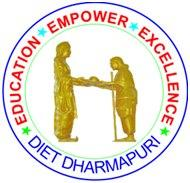- Pre-Service Teacher Education plays a crucial role in shaping quality education by offering various programs and activities.
- It conducts pre-service teacher education courses, manages student admissions, and prepares an annual activity calendar.
- Trainees are oriented on learner-centered pedagogy, multi-grade teaching, self-learning, activity-based learning, joyful learning, and updated strategies.
- Training is provided in educational psychology, classroom management, and addressing the needs of gifted children, late bloomers, and children with special needs (CWSN).
- Trainees participate in co-curricular and extra-curricular activities to develop their personality, and are trained in preparing lesson plans, teaching materials, assessment strategies, and continuous comprehensive evaluation (CCE).
- They receive hands-on training in science, psychology, ICT, and language labs. Monthly student magazines and annual reports are published.
- Academic support is extended to other TTIs like GTTIs, BITEs, aided, and self-financed TTIs.
- Trainees are sensitized to child-centric approaches and undergo internal assessments.
- Feedback is given to improve curriculum and faculty support is provided for teacher development programs.
- Internship monitoring of all TTIs in the district is also done.
According to the School Education (ERT) Department G.O.(MS) No. 92, dated 19.05.2018, the functioning of DIETs is categorized into two models: Model I and Model II. 12 DIETs fall under Model I which serve as centres for both Pre-service and In-service training. the remaining 20 DIETs fall under Model II, which focus solely on In-service training of teachers. DIET Dharmapuri falls under the Model II category.
In-Service Teacher Education
- In-Service Teacher Education - the department supports planning and coordination at all levels.
- It drafts and publishes training calendars aligned with SCERT, ensures online/offline registration, logistics, training design, and material development (modules, handouts, manuals, etc.).
- It supervises BRCs and CRCs, facilitates inter-departmental planning, and selects expert resource persons to conduct participatory and thought-provoking sessions.
- Trainings include hands-on activities, focus on key skills like multi-grade and large class management, team teaching, and collaborative learning.
- Participatory methods like lectures, group work, and projects are used.
- Induction programs are organized for new teachers, HMs, and education officers at all levels, preparing them for both administrative and academic responsibilities.


